I couldn’t resist this Black Friday advice. Seriously! They can spell “inconvenience” correctly, but can’t spell “exact”?
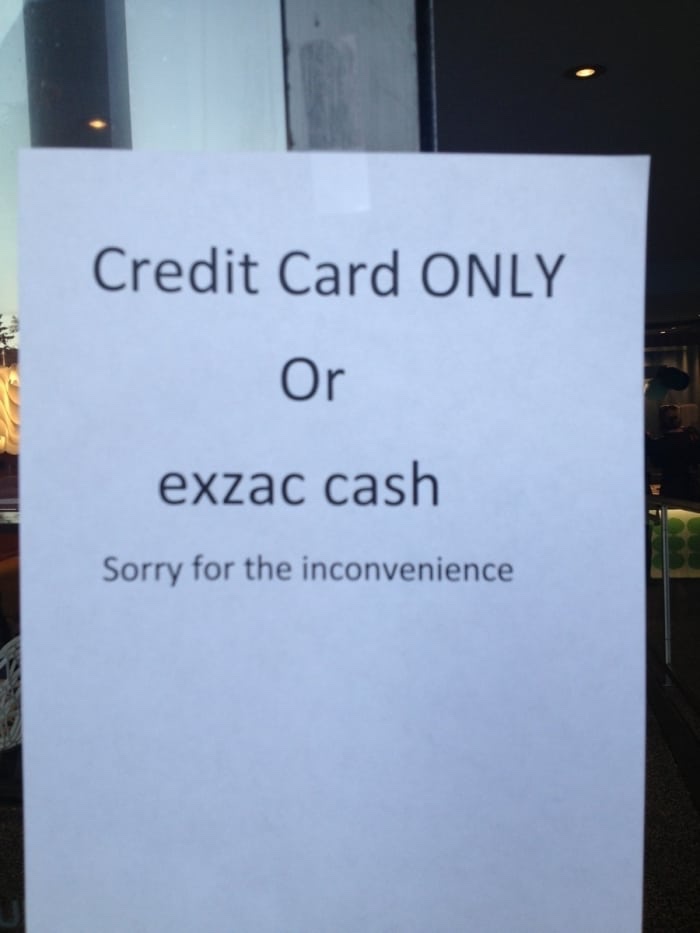
I couldn’t resist this Black Friday advice. Seriously! They can spell “inconvenience” correctly, but can’t spell “exact”?

 Here is an article that was posted on November 28, 2013, that is still appropriate today. Happy Thanksgiving!
Here is an article that was posted on November 28, 2013, that is still appropriate today. Happy Thanksgiving!
Thinking about Thanksgiving here in the United States got me thinking about the names of holidays and grammar rules. For instance, if you use Eve or Day with the name of a holiday, i.e., Thanksgiving Day, you capitalize day. However, if you were to say “the day before Thanksgiving,” day would not be capitalized. Religious holidays are also capitalized
Even some “invented” holidays are capitalized
Is happy capitalized when used with a holiday? If you exclaim “Happy Thanksgiving!” then it is, but if you use it in a regular sentence “I wish you all a happy Thanksgiving,” then it is not.
Generally, the seasons of the year are not capitalized unless it is part of a proper name.
When using seasons to describe the time of year, remember that seasons are reversed in the Northern and Southern Hemispheres. When it is summer in the U.S., it is winter in most of South America and Australia. In that case, it is clearer to say “the first three months of the year,” or “the last quarter of 2014.”
As for possessives with the word “season,” the phrase Season’s greetings! is possessive because you are referring to holidays that happen only during one season—winter. Possessives with names of holidays are usually singular; however, where the holiday is plural, the apostrophe is after the plural word:
The official holiday name wins out over plurals and possessives, so you may just have to look it up to be positive you are correct.
I wish you all a happy Thanksgiving and know that when I count my blessings, the people who read my blog faithfully, those who stumble across it, and those who cheer me on are near the top of my list. Thank you!
So many errors in one word, but suffice it to say that Proof That blog and I wish you a very Happy Thanksgiving.
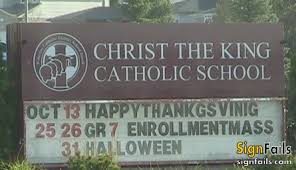
A friend sent this to me. I’m sure they meant check-OUT privileges, but that’s not what it says.
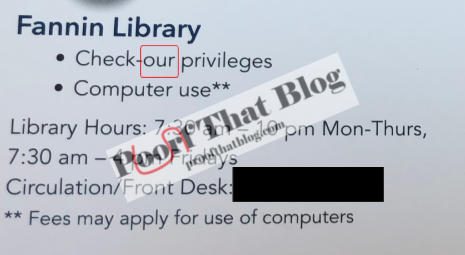
This was in a recent local bar publication. You can see that the headline is wrong because it is right in the first paragraph. This just shows the importance of reading headings as well as the language of your document.
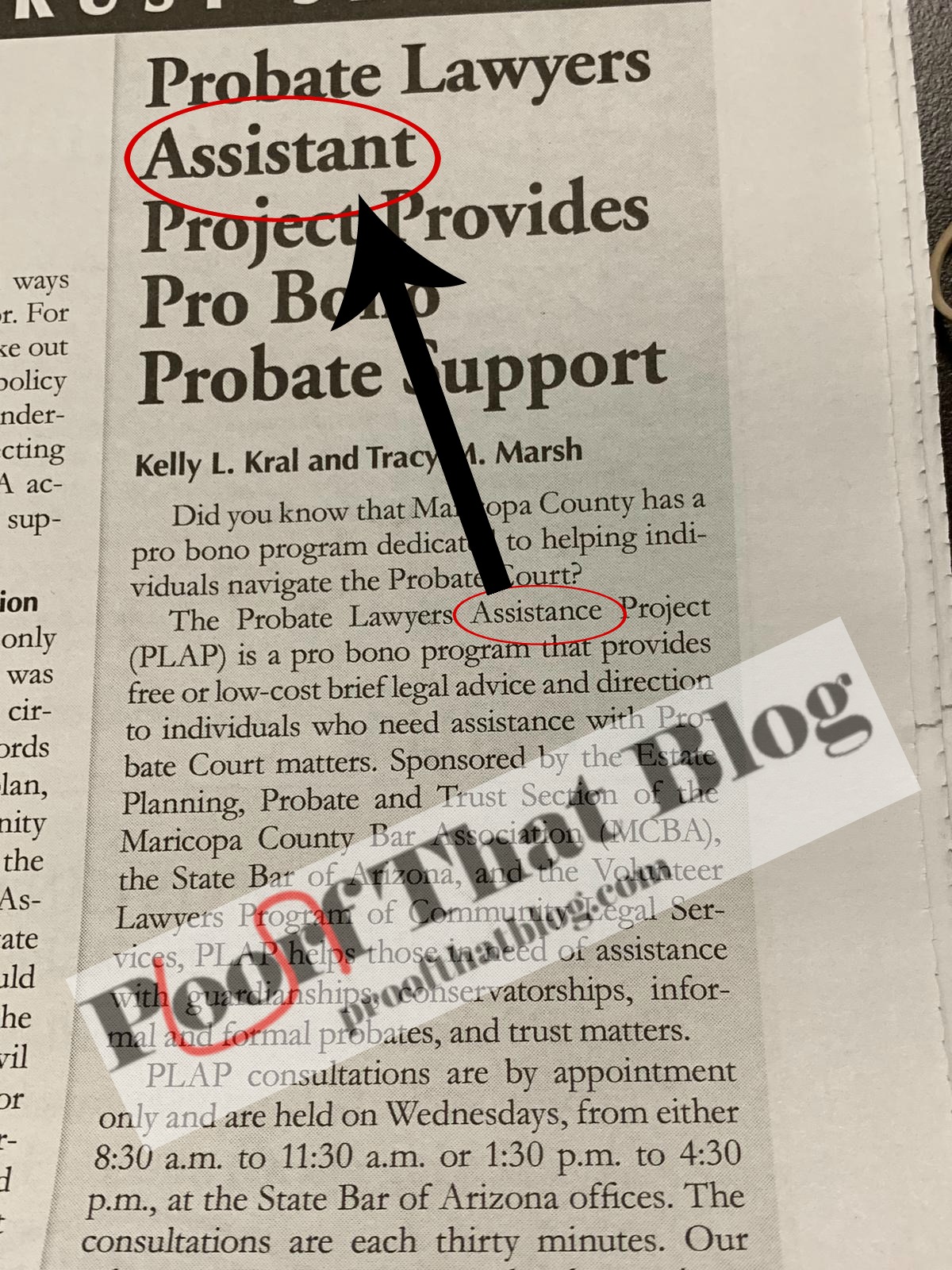
I realize news stations are always wanting to be the first ones out with the headlines, but do they honestly think that being the first one out with a headline with typos makes them look good? This was in my important news alerts this past week:
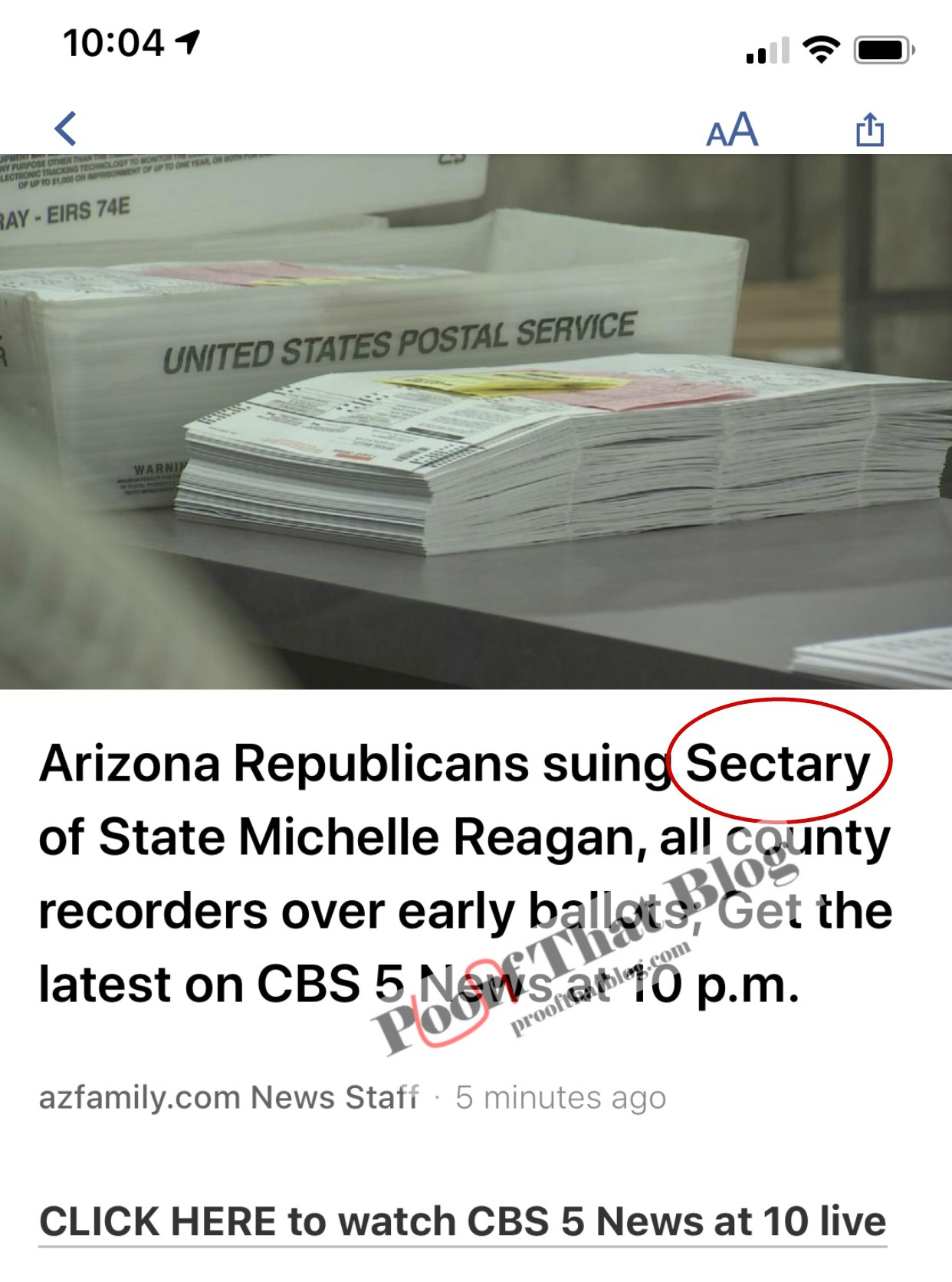
This came from a PTB reader. I guess this means non-alcoholic beer is prohibited–along with the other REAL alcoholic beverages. Or are there really people who don’t think beer is alcohol. Wait–I watch Live PD so I already know the answer to that question.
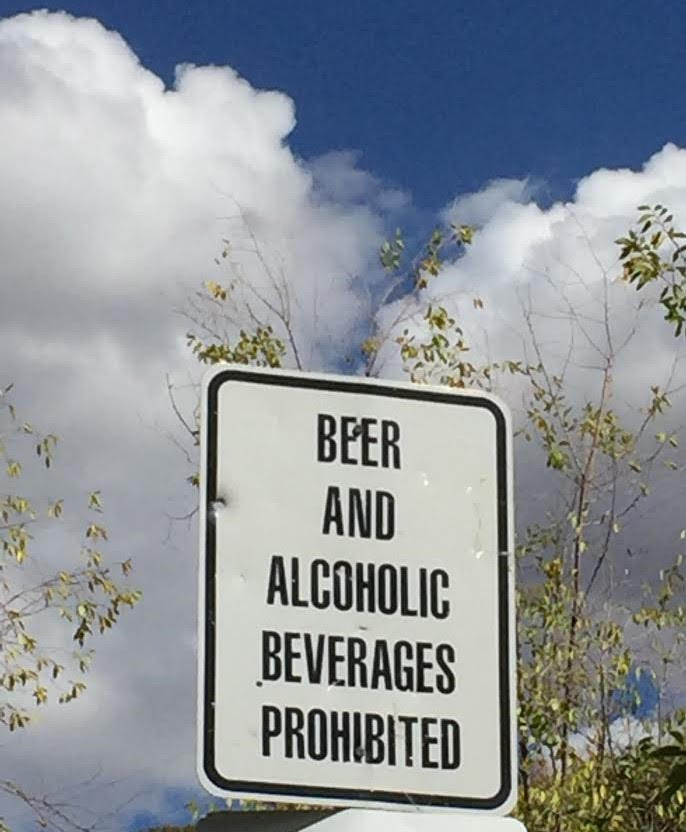
 It’s time for “Confusing Words of the Week” where I take a set of two or three words that get confused and give you definitions and try to give you a memory trick to help you remember when to use which word. If you have words that confuse you, use the Ask PTB tab on the website or send an email to proofthatblog@gmail.com and they may appear here soon!
It’s time for “Confusing Words of the Week” where I take a set of two or three words that get confused and give you definitions and try to give you a memory trick to help you remember when to use which word. If you have words that confuse you, use the Ask PTB tab on the website or send an email to proofthatblog@gmail.com and they may appear here soon!
This week’s words are:
Memory tips:
A one-sentence email that is this full of errors really concerns me. Merriam-Webster defines “last minute” as “the moment just before some climactic, decisive, or disastrous event.” I’m not sure how you could have an “extremely last minute” if last minute means “the moment just before.” Not even counting the other spelling errors in this email. Take time to slow down and actually read what you’re putting out there for all the world to see.
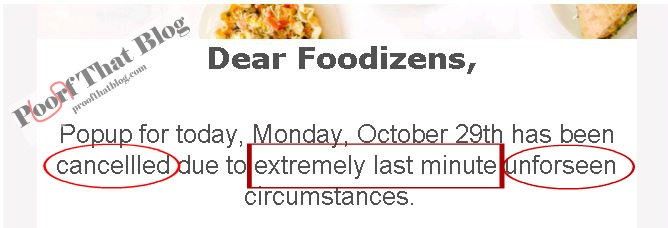
I saw this online. It appears someone got carried away with the zeros and instead of 10 people sickened, they initially reported that it was 100. That’s quite a difference in the number of people affected, which makes for bad news in my book.
